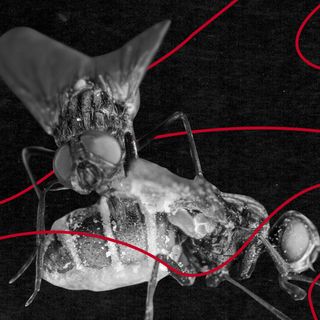If, like me, you have gorged yourself on sweets and fried snacks this Diwali weekend, you may have harmed more than just your health. According to a new study, most “fun” foods adversely affect the environment — a finding that has now added to the guilt many of us experience while gulping down soft drinks with burgers and fries from our preferred fast-food chains.
Published in Current Nutrition Reports, the study reviewed 20 existing reports on the environmental impact that follows the consumption of different foods. The results indicate that sweets, pastries, fried foods, and processed meat contribute to higher cropland, greater water scarcity, and overall, a deeper ecological footprint.
“It is time we better acknowledged the environmental impacts of the type and amount of food we eat, considering the planet as well as our health,” Sara Forbes, a dietician at the University of South Australia, who led the study, said in a statement. “By 2050, the world’s population is projected to reach 10 billion people. There is no way we can feed that amount of people unless we change the way we eat and produce food,” Forbes added.
So far, we’ve known fast food is bad for our mental health, and can lead to premature aging — besides, of course, obesity. What we may not, however, know is that the manufacturing and production of processed food, as well as most meats, are major contributors to greenhouse gas emissions. Their transportation just piles further onto the emissions. In addition, the packaging for fast food — from wrappers to straws to boxes and bags — makes up a significant portion of litter. Junk food creates a ton of junk, basically.
In fact, last year, Coca-Cola, PepsiCo, and Nestlé — known for their processed, sugary food and beverages — were named as the world’s top plastic polluters for the third consecutive year.
Related on The Swaddle:
Coca‑Cola Trials Paper Bottles To Address Plastic Pollution. But Is It Actually Good for the Environment?
That’s not all the damage unhealthy food does to the environment though. “Thanks to all the pathogens, hormones, drugs, and fertilizers that are used to produce fast food, seeping into our water supplies, water quality has suffered dramatically,” One Green Planet reported, adding that “outbreaks of waterborne illness including E. coli, marine life dead zones, and numerous other hazards can all be contributed to fast food.”
Turns out, what’s healthier for our bodies is, in fact, better for the environment. According to a November 2019 study, whole-grain cereals, nuts, vegetables, fruits, legumes, and olive oil had some of the lowest ecological impacts. Incidentally, most of them also feature in the healthiest food groups. Another study, from January the same year, also reached a similar conclusion.
People whose diets had a lower carbon footprint were eating less red meat and dairy — which contribute to a larger share of greenhouse gas emissions and are high in saturated fat — and consuming more healthful foods like poultry, whole grains, and plant-based proteins,” explained Diego Rose, a professor of nutrition and food security at Tulane University in the U.S., who led the January study.
As Jason Hill, co-author of the November study, and a bioproducts and biosystems engineering professor at the University of Minnesota said, “We now know that making our nutrition a priority will pay dividends for the Earth, as well.”
I’m not sure whether the idea of saving the planet will be able to stop me from ordering those crunchy fries through Swiggy this weekend. But, maybe, it’ll eventually strengthen my resolve to cut down on junk food because, well, two motivations are better than one, right?




